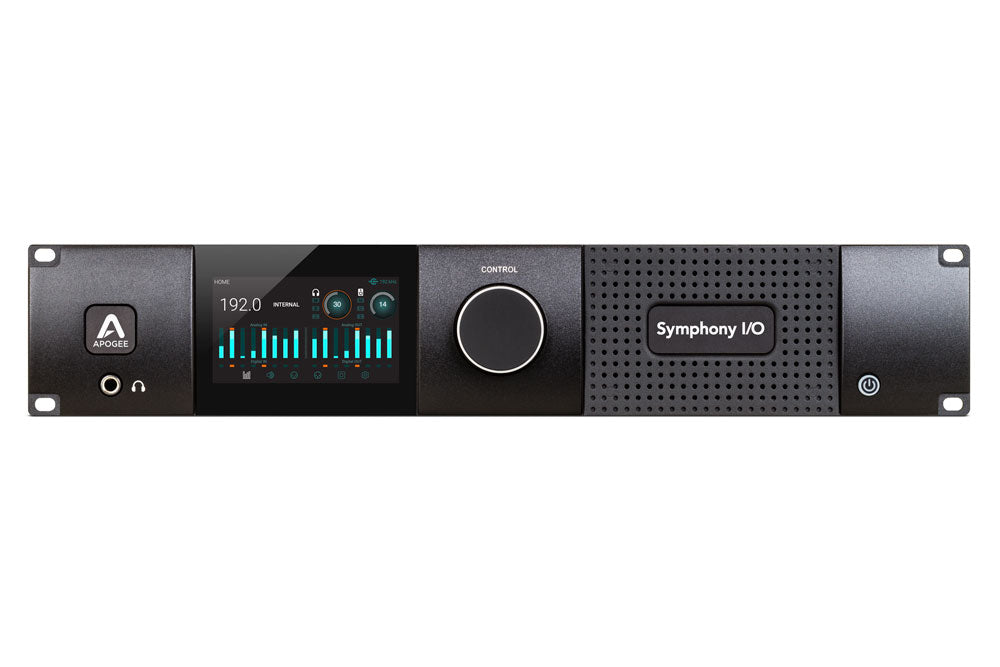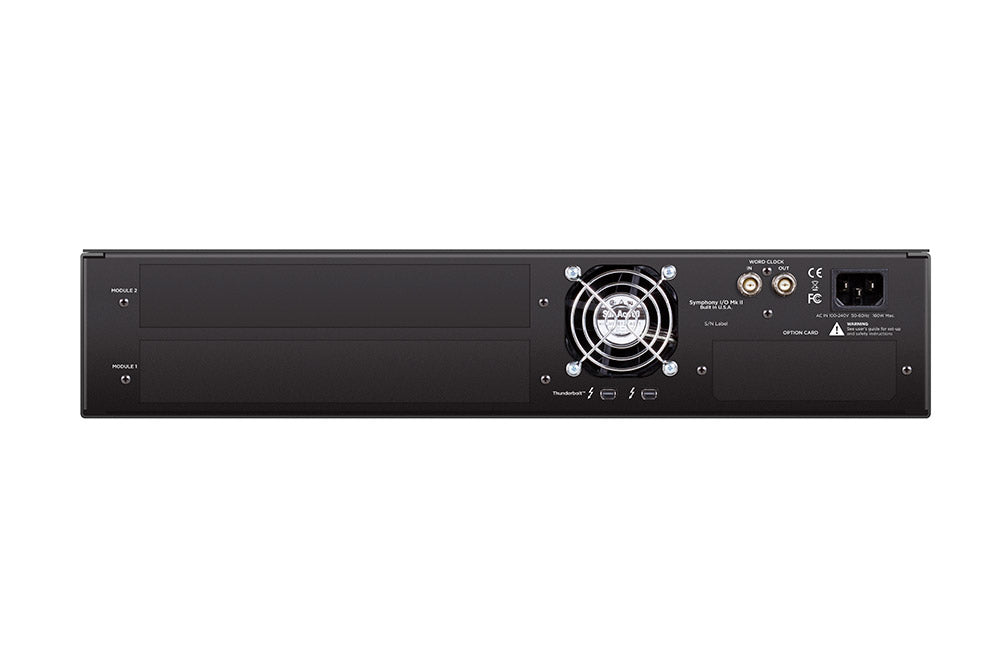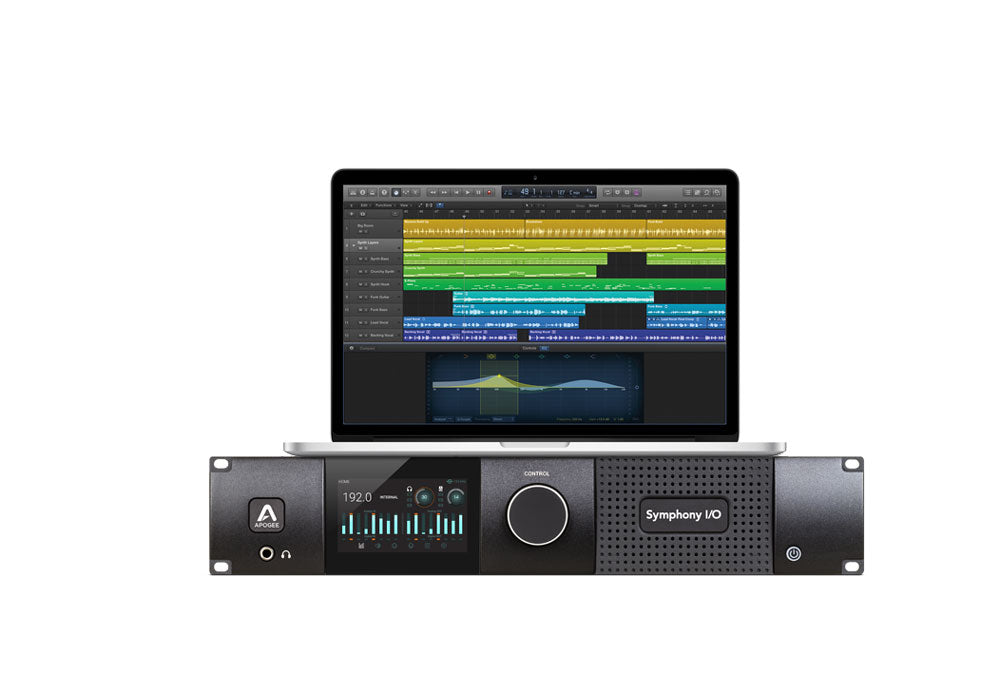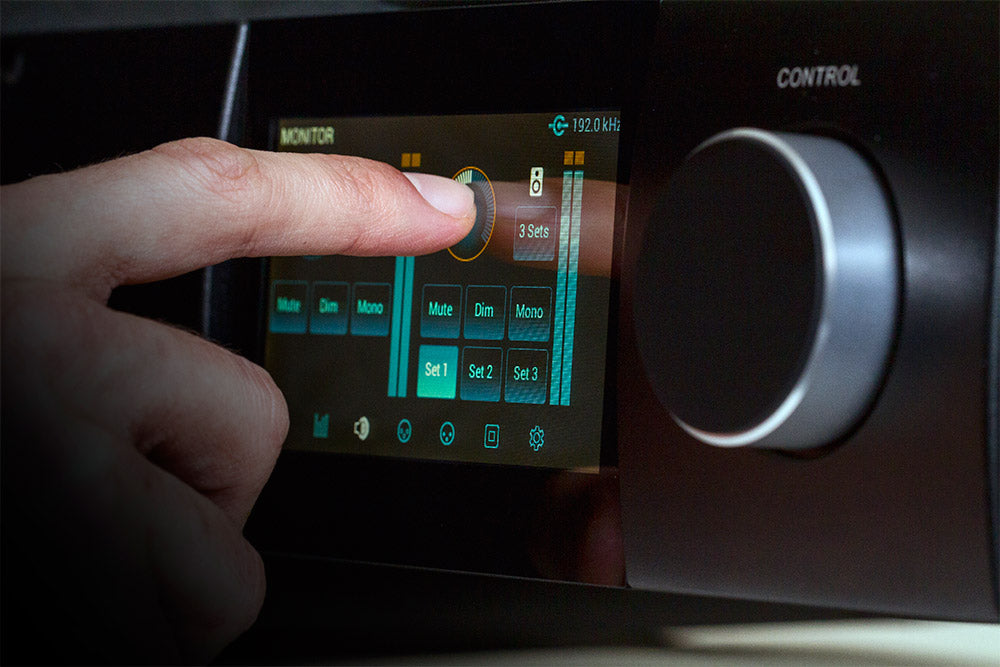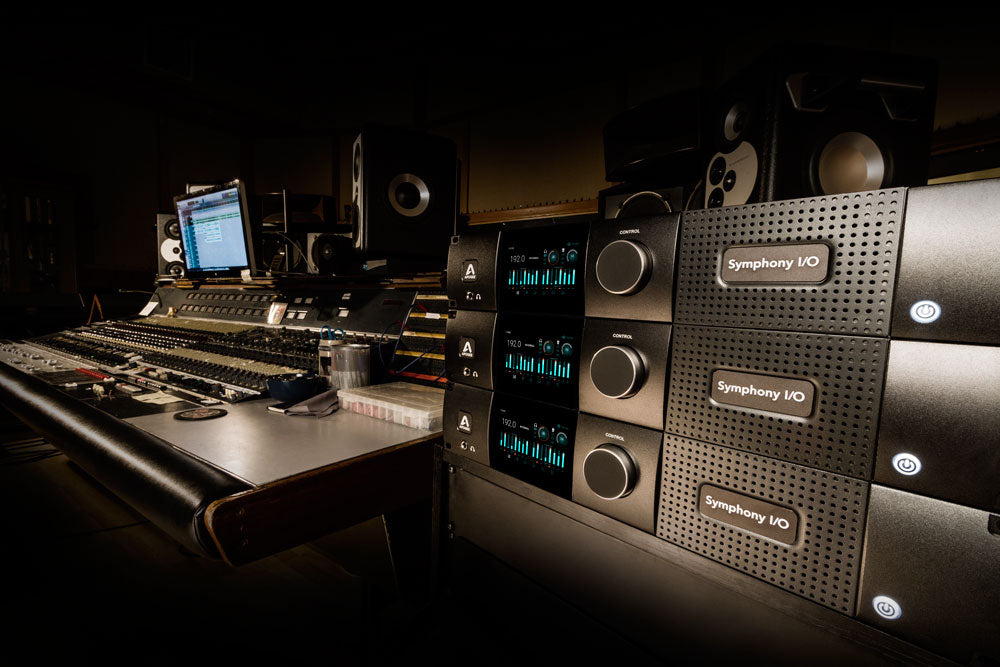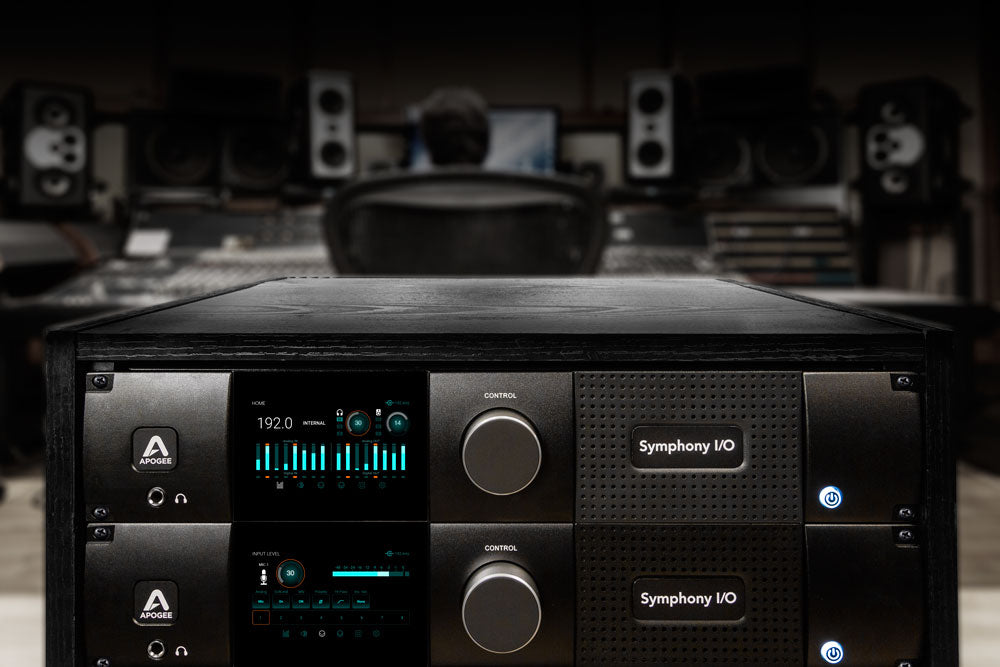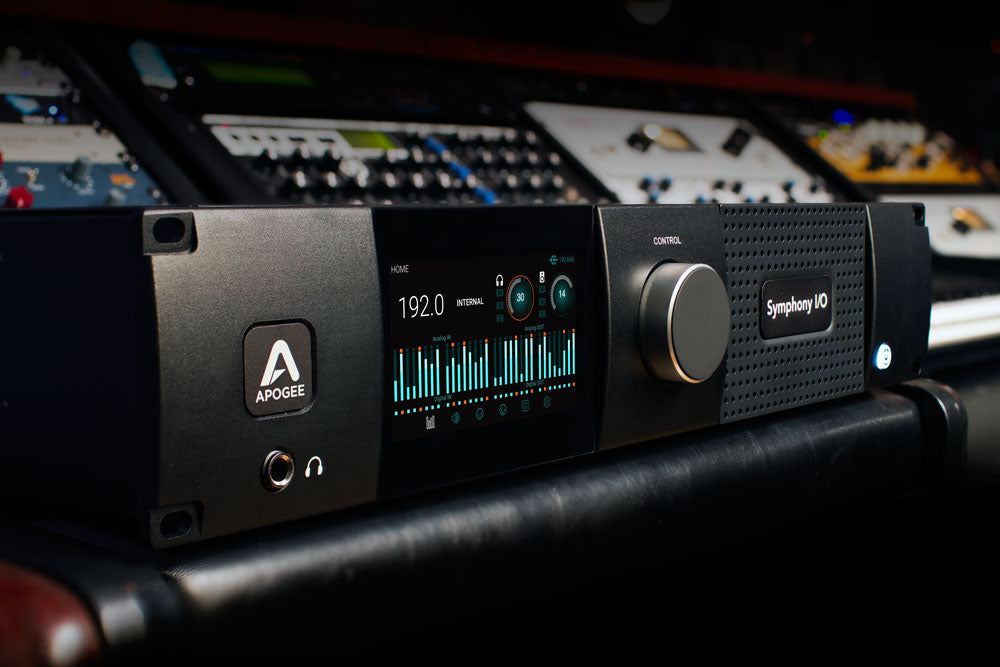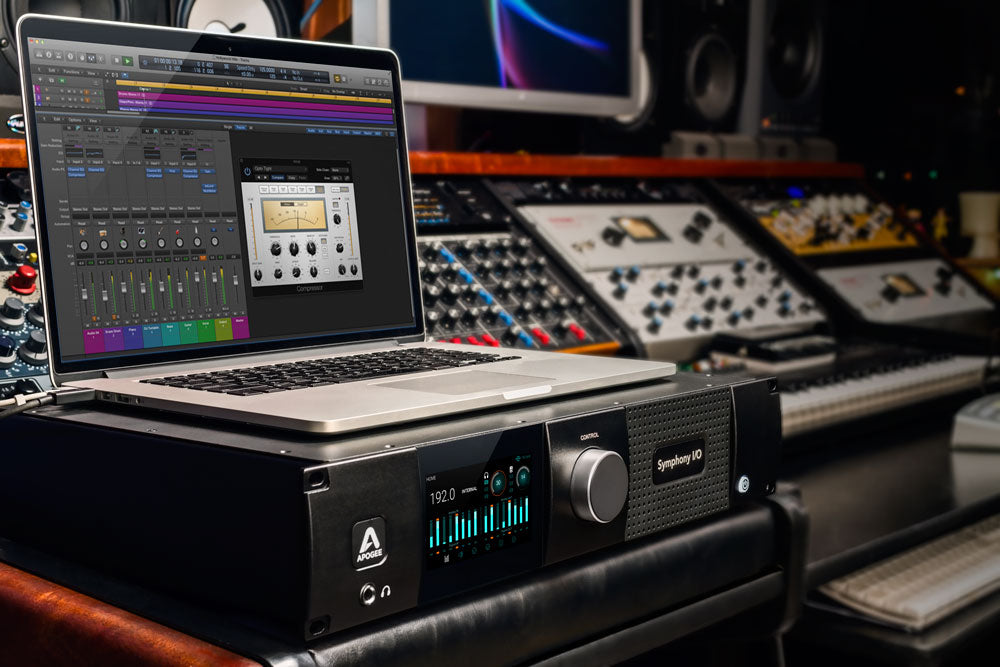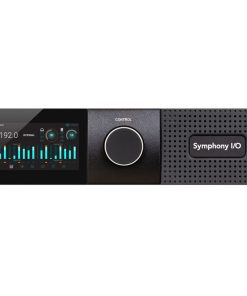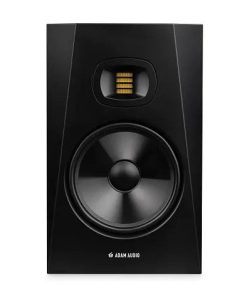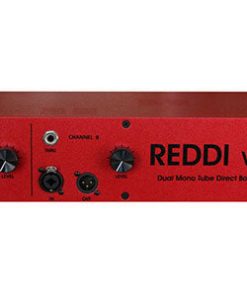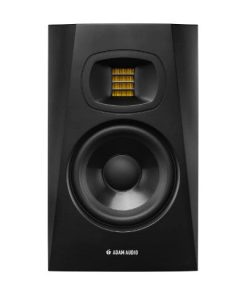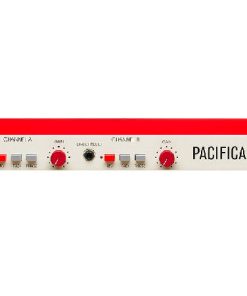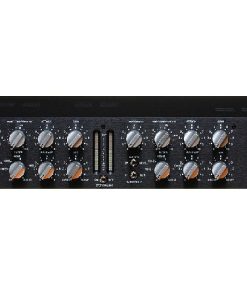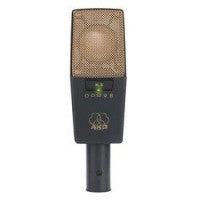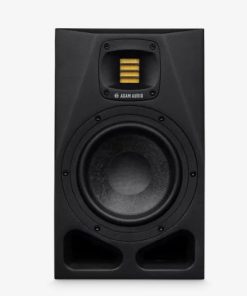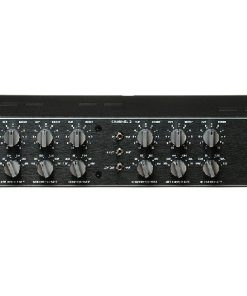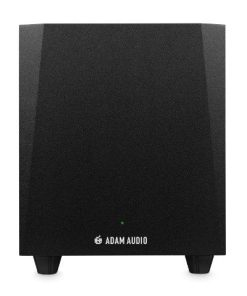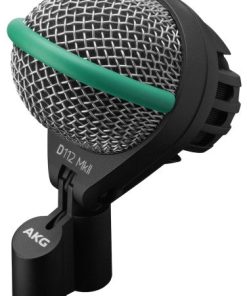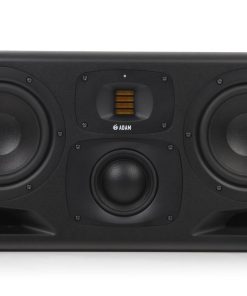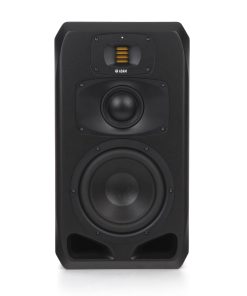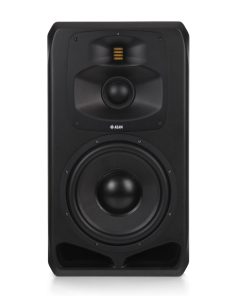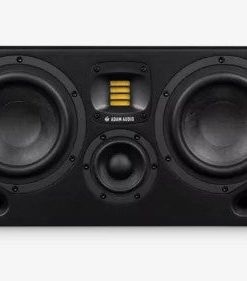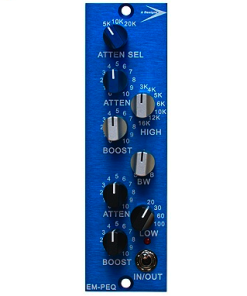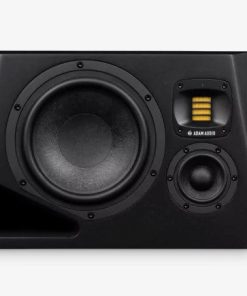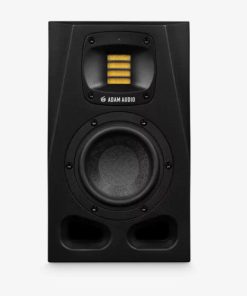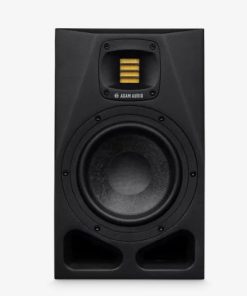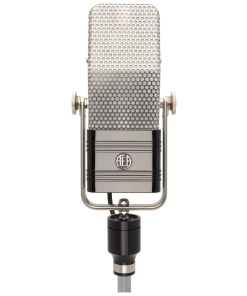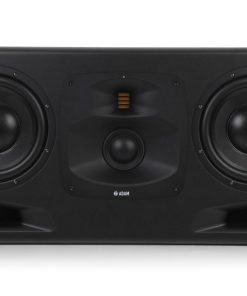Apogee Symphony I/O MKII Thunderbolt 1 Chassis with 16×16 Analog I/O Apogee
$ 5.995,00 $ 1.498,75
Trade in and Trade Up to Apogee Symphony IO MkII
June 1, 2024 – August 31, 2024
Trade up to Symphony I/O MkII
- Get up to $1,200 toward your purchase
- Trade in any audio interface from any brand
- Customer gets $149 voucher in Apogee plugin for sending your audio interface
Limited Time Offer!!
Buy Apogee Symphony Desktop and Get 50% off on any Apogee Plugin or Bundle
The Apogee Symphony I/O MKII features world-class conversion, intuitive touchscreen control, and a modular design to accommodate any studio configuration or future growth – Thunderbolt audio connectivity with 16×16 analog line I/O
In the early days of DAW recording, Apogee’s dedicated converters became an industry standard and were primarily used as a secondary front-end to bypass the converters of Pro Tools interfaces. While Pro Tools interfaces have come a long way since then, Apogee hasn’t been sitting on its hands. Not only have their converters gotten better after 30 years of leading the field, they have been incorporated into all-in-one modular interfaces that are capable of direct connection to Pro Tools via PT HD ports. They also offer your choice of powerful, high-speed Thunderbolt connectivity, as well as Waves SoundGrid and Dante network audio systems. To meet the current demands of audio professionals in a volatile marketplace, Apogee offers the Symphony I/O Mk II – a multi-channel audio interface featuring Apogee’s latest flagship AD/DA conversion, modular I/O (up to 32 inputs and outputs), intuitive touchscreen display, and optional world-class microphone preamps. Designed to deliver professional sound quality for audio recording, mixing and mastering, Symphony I/O Mk II is the music production centerpiece for any modern studio.
Apogee Symphony I/O Mk II – Just the Facts:
- Thunderbolt connectivity, 16×16 analog line I/O
- Best AD/DA conversion of any Thunderbolt audio interface in its class
- Up to 32 channels of modular analog I/O with optional 8 mic preamps
- Original Symphony I/O modules are compatible with new Mk II chassis
- Best per-channel value of any interface in its category
- Ultra-low latency performance; 1.35 ms with Thunderbolt and Logic Pro X
- Highly customizable Symphony Control software provides easy access to all I/O parameters (Optional Apogee Remote hardware controller for control software, sold separately)
- Intuitive touchscreen display and front panel control
- Designed in California, Built in the U.S.A.
Apogee Symphony I/O Mk II – Under the Hood
Designed for the ultimate in integration flexibility
Offering a choice of digital connectivity including Thunderbolt, Pro Tools DigiLink, Waves SoundGrid, and Dante, there’s a Symphony I/O Mk II solution for everyone; home studio, project studio, commercial recording studio, and scoring stage. Choose from four base I/O configurations, 2×6, 8×8, 16×16, or 8×8 with 8 mic preamps and easily expand as your studio grows. With two module slots and the capacity for up to 32 inputs and outputs of AD/DA conversion per unit, Symphony I/O Mk II offers the best per-channel value of any interface in its category.
Comprehensive control via front-panel touchscreen
For convenient setup and control, all essential input and output settings can be accessed from Symphony MII’s front-panel touchscreen. It gives you easy access to input selection, monitoring levels, mic pre gain, or system calibration to match the levels of the other analog gear in your studio. All visual feedback critical for recording and monitoring is presented by high-resolution TFT display. Without looking at your computer, Symphony I/O Mk II lets you see metering for up to 64 channels of I/O (32-in x 32-out), signal levels, polarity, muting, phantom power, and Soft Limit.
Making modular merriment
A common dilemma of gear acquisition facing both manufacturer and customer was hoping that the unit you wanted had the right I/O for your system. Disappointment prevailed when I/O didn’t match up. Some manufacturers went as far as to consult with pro audio salesmen to see what their customers were requesting, but that was still hit or miss.
Challenge accepted! Problem solved with the Symphony I/O MKII. The Symphony’s I/O Modules are designed to future-proof your investment in Apogee sound quality. Representing over 30 years of Apogee R&D and design excellence, these powerful modules deliver superior-sounding digital audio recording. With 3 available I/O Modules and an 8 channel mic preamp module, you can choose from base configurations or expand to grow your studio’s capabilities.
Additionally, if you already own an original Symphony I/O, you’re still good to go. The Symphony I/O Mk II chassis can increase the longevity of your system by offering backward compatibility with the first-generation 2×6, 8×8, 16×16 and 8 channel mic preamp I/O modules – investment saved.
True Thunderbolt performance
Symphony I/O Mk II Thunderbolt is the most powerful multi-channel audio interface for Thunderbolt-based Mac workstations. Symphony I/O Mk II Thunderbolt delivers the full potential of Thunderbolt 2 performance with the lowest latency, unmatched CPU efficiency and 2 ports for connecting additional peripherals.
Low-latency operation
Symphony I/O Mk II Thunderbolt relies on Apogee’s proprietary Thunderbolt driver, written from the ground up to offer unmatched performance and efficiency. When using Logic Pro X, latency has been reduced to an astounding 1.35 ms round-trip*, allowing you to monitor through your DAW, plug-ins included, simplifying your workflow and leveraging the power of your Mac. Even when your session’s DSP demands require a higher buffer setting, Symphony I/O’s ultra-low latency means no longer having to choose between power and speed.
To accommodate different workflow preferences, Symphony I/O Mk II Thunderbolt features optional direct hardware monitoring through Symphony Control Software with 0.6ms of latency.
* Logic Pro X at 96kHz / 32 buffer setting
High track count, low CPU hit
Symphony I/O Mk II Thunderbolt’s custom driver includes a revolutionary Direct Memory Access (DMA) engine to more efficiently read and write data directly to Mac memory independent of the Mac CPU. The DMA engine, running on Symphony I/O Mk II Thunderbolt’s hardware logic chip, increases the driver’s efficiency and provides the highest resolution signal possible to the DAC stage. This implementation allows the driver to crunch an enormous amount of data at an amazing speed, while making a very light demand on your Mac CPU. You benefit with lower latency, more plug-in power, and a transparent and encompassing listening experience.
Option card slot for future connectivity
If you’re currently working in Pro Tools | HD, thinking about going Native with Thunderbolt, or setting up an audio over Ethernet network, the Option card slot offers flexibility for the present as well the future. As new platforms develop and audio recording workflows evolve, Apogee engineers will create new cards to accommodate technological advances, thus prolonging the life and relevance of your Symphony MKII, For example, Dante Audio over IP network connectivity is coming soon to a Symphony I/O MKII near you – so stay tuned.
Dynamic temperature control
Let’s face it, when it comes to prolonging the life of electronics, the only thing running through it that should be hot is your licks. To keep the Symphony I/O Mk II running at optimal temperature, it features advanced controls to ensure the highest level of performance and reliability. The new temperature controls are complemented by an improved fan and chassis ventilation design, which allows adequate component cooling to occur quietly.
Symphony Control software
Designed specifically for Symphony I/O Mk II audio interfaces. Symphony Control for Mac has been built from the ground up and replaces Apogee’s Maestro software. Symphony Control delivers all the functionality of Maestro in a new, highly customizable user interface along with innovative new features, such as talkback functionality, a simplified “Essentials” control window, and an FX Send mixer feature, recently introduced as part of the Element Control software.
With the introduction of Symphony Control, you can use 2 Symphony I/O Mk IIs simultaneously for up to 64 channels of I/O over a Thunderbolt connection (Mac). Symphony I/O Mk II combined with Logic Pro on a Mac delivers the most advanced native workstation available, with superior-quality high-channel-count recording with incredibly low latency.
Optional hardware remote control via Apogee Control software
Symphony Control software also provides compatibility between Symphony I/O Mk II audio interfaces and the Apogee Control hardware remote accessory. The optional hardware remote control features a Symphony-inspired control knob, three control-knob focus buttons, plus 8 user-configurable buttons that grant direct access to a wide range of Apogee Control software functions. Sold separately, Apogee Control hardware remote connects directly to your Mac via included USB cable.
Standalone mode
Standalone Routing lets you set up and use Symphony I/O Mk II without a computer. From the front-panel touchscreen you can set up Symphony I/O Mk II for use in the following situations and more:
Hi-Fi Systems:
- Connect Symphony I/O MkII to a Blu/Ray, CD player, or power amp for high-end speakers. Symphony I/O Mk II is also an ideal high-end headphone amp.
Windows Workstations:
- Use a third party ADAT or AES PCI interfacing card to use Symphony I/O MkII converters on a Windows Machine.
Standalone Converter:
- Standalone AD/DA converters can be used alongside other digital gear. For example, to expand other interfaces, connect to live sound or studio digital consoles, or broadcast equipment. With Standalone mode, you can also bypass the converters of your existing gear (just like the days of yore when Apogee saved the day).
Apogee’s legendary sound quality
Apogee engineers have made it their passion to improve every new product by using the latest in electrical components and designing optimized circuitry that often exceeds the expectations of the component manufacturer. This is the Apogee Advantage. Symphony I/O Mk II is the culmination of this 30-year ongoing mission, raising the bar on all that’s come before, with even better clarity and sonic transparency. In fact, when equipped with either the new 8×8 or 16×16 Mk II I/O modules, Symphony I/O Mk II outperforms all other multi-channel audio interfaces available for Pro Tools HD or Thunderbolt-based systems.
Symphony I/O MK II is an interface for the entire professional audio industry and the first choice for countless Grammy-winning artists, producers, songwriters, and engineers. For more information, call or chat online with your PAD Studio Consultant today.
Video
Specifications
Analog to Digital:
- THD+N: -115dB @ 22dBu (0.00020%) un-weighted
- Dynamic range: 122dB A-weighted
- Maximum input levels: +4dB setting: +24dBu; -10dB setting: +6dBV
- Frequency response at 44.1kHz: 1Hz-20kHz (+/- 0.05dB)
- Input impedance: 10K
Digital to Analog:
- THD+N: -119dB @ 21dBu (0.00014%) un-weighted
- Dynamic Range: 126dB A weighted
- Max output levels – ∞ to +24dBu
- Frequency response at 44.1kHz: dc to 20kHz (+/- 0.05dB)
- Output impedance: 50 ohm
- Outputs are balanced through Apogee’s proprietary Perfect Symmetry Circuitry (PSC)
Headphone Output:
- 1 stereo 1/4″ headphone output on front panel
- THD+N: -110dB @19dBu into 600 Ohm (=80mW); -101dB @14dBu into 32 ohm (=470mW)
- Dynamic Range: 121dB A-weighted
- Output: Apogee’s proprietary Constant Current Drive™ provides smooth frequency response with any headphones
Power: 90-240VAC, 50-60Hz, 150W
Operating System:
- Thunderbolt: Mac OS only 10.10 and above
- HD: Any Mac or PC running Pro Tools HD 9 or greater
Software Compatibility:
- Thunderbolt: Logic Pro or any Core Audio compatible application on Mac OS X
- HD: Pro Tools HD 9 or greater
- Dimensions (W,D,H): 17-3/4″ (19″ with rack ears) x 11-1/2″ x 3-1/21″ (45 (48.26 with rack ears) x 29.2 x 8.9 cm)
Packaging Dimensions:
- Symphony I/O Chassis Box (W,D,H): 22-7/8″ x 17-3/4″ x 9-1/4″ (58.1 x 45.1 x 23.5 cm
- I/O Module Box (W,D,H): 13-3/4″ x 12-1/4″ x 3-1/4″ (34.9 x 31.1 x 8.3 cm
Package Contents:
- Symphony I/O Mk II Interface
- Power Cable
- Quick Start Guide
- Warranty Booklet
Prompt Delivery and Professional Packaging
Our long-standing partnership with UPS FedEx DHL and other global carriers lets us offer a range of shipping services. Our warehouse staff is extremely skilled and will package your items according to our precise and exact specifications. Your goods will undergo an extensive inspection and be safely packaged prior to being sent out. Each day, we ship to thousands of customers in many countries. The fact that we are committed to becoming the biggest online retailer in the World is clear. These warehouses are in Europe in the same way as they are in USA.
Note: Orders that include more than one item are assigned a processing period depending on the item.
Before shipping, we will inspect thoroughly the items you have ordered. Most orders are shipped within 48 hours. Expected delivery time is between 3-7 days.
Returns
Stock is dynamic. It's not entirely managed by us since we are involved with multiple entities, including the factory and the storage. The actual stock can change at any moment. It is possible that your order may be out of stock once the order has been placed.
Our policy lasts for 30 days. We cannot exchange or refund your order if it has been 30 days from the date of purchase.
For your item to be returned it must be in its original packaging, unopened and in the condition you received it. The item must be in its original packaging.
Related products
500 Series
Headphones
Monitor
Accessories
Recording Equipments
500 Series
Recording Equipments
Recording Equipments
Recording Equipments
Microphones
Microphones
Equalizers
Subwoofer
Monitor
Accessories
Recording Equipments
Accessories
Monitor Systems
Monitor Systems
Monitor Systems
Subwoofer
Recording Equipments
Monitor
Monitor
Microphones
Microphones
Monitor Systems
